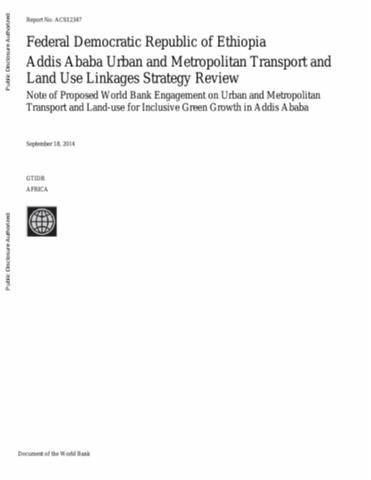The World Bank is a vital source of financial and technical assistance to developing countries around the world. We are not a bank in the ordinary sense but a unique partnership to reduce poverty and support development. The World Bank Group has two ambitious goals: End extreme poverty within a generation and boost shared prosperity.
- To end extreme poverty, the Bank's goal is to decrease the percentage of people living on less than $1.25 a day to no more than 3% by 2030.
- To promote shared prosperity, the goal is to promote income growth of the bottom 40% of the population in each country.
The World Bank Group comprises five institutions managed by their member countries.
The World Bank Group and Land: Working to protect the rights of existing land users and to help secure benefits for smallholder farmers
The World Bank (IBRD and IDA) interacts primarily with governments to increase agricultural productivity, strengthen land tenure policies and improve land governance. More than 90% of the World Bank’s agriculture portfolio focuses on the productivity and access to markets by small holder farmers. Ten percent of our projects focus on the governance of land tenure.
Similarly, investments by the International Finance Corporation (IFC), the World Bank Group’s private sector arm, including those in larger scale enterprises, overwhelmingly support smallholder farmers through improved access to finance, inputs and markets, and as direct suppliers. IFC invests in environmentally and socially sustainable private enterprises in all parts of the value chain (inputs such as irrigation and fertilizers, primary production, processing, transport and storage, traders, and risk management facilities including weather/crop insurance, warehouse financing, etc
For more information, visit the World Bank Group and land and food security (https://www.worldbank.org/en/topic/agriculture/brief/land-and-food-security1
Resources
Displaying 1271 - 1275 of 4906West Bank and Gaza Investment Climate Assessment : Fragmentation and Uncertainty
This Investment Climate Assessment (ICA)
seeks to evaluate the conditions under which the Palestinian
private sector currently operates in the West Bank
(including East Jerusalem) and the Gaza strip. This
assessment is both an update and expansion on a similar
assessment undertaken by the World Bank in 2006. As such, it
provides both a snapshot of the investment climate in 2013,
as well as a longitudinal view of what has changed in the
Addis Ababa Urban and Metropolitan Transport and Land Use Linkages Strategy Review
Since 2004 Ethiopia has experienced strong and generally broad-based real economic growth averaging 10.7 percent per annum. It is one of the most populous countries in the world, but it is not highly urbanized. Nevertheless, urbanization in Ethiopia is taking place rapidly, and is expected to increase over the coming few decades. Addis Ababa, is its commercial and political center and exemplary of the rapid urban growth of Ethiopia. The rapid urban and metropolitan growth in Addis Ababa is exacerbated by poor planning and land-use, inadequate infrastructure, and chronic housing shortage.
Building Resilience for Sustainable Development of the Sundarbans : Strategy Report
Recognizing the importance and
uniqueness of the Sundarbans, the United Nations
Educational, Scientific and Cultural Organization (UNESCO)
declared the Indian portion of the forest a World Heritage
Site in 1987, and the UNESCO Man and the Biosphere Program
has included the Sundarbans Biosphere Reserve in the Global
Network of Island and Coastal Biosphere Reserves
Contributing to Action on Climate Change and Sustainable
Global Review of Grievance Redress Mechanisms in World Bank Projects
Effectively addressing grievances
from people impacted by World Bank projects is a core
component of managing operational risk and improving a
project s results. Grievance redress mechanisms (GRMs) can
be an effective tool for early identification, assessment,
and resolution of complaints on projects. Understanding when
and how a GRM may improve project outcomes can help both
project teams and beneficiaries improve results. However,
The World Bank Group Goals : End Extreme Poverty and Promote Shared Prosperity
Although poverty has declined rapidly
over the past three decades, humanity still faces urgent and
complex challenges. The World Bank Group has established
ambitious but achievable goals to anchor its overarching
mission and to galvanize international and national efforts
in this endeavor. Accordingly, the institution will strive
to: (i) end extreme poverty at the global level within a
generation, and (ii) promote what may be called shared







